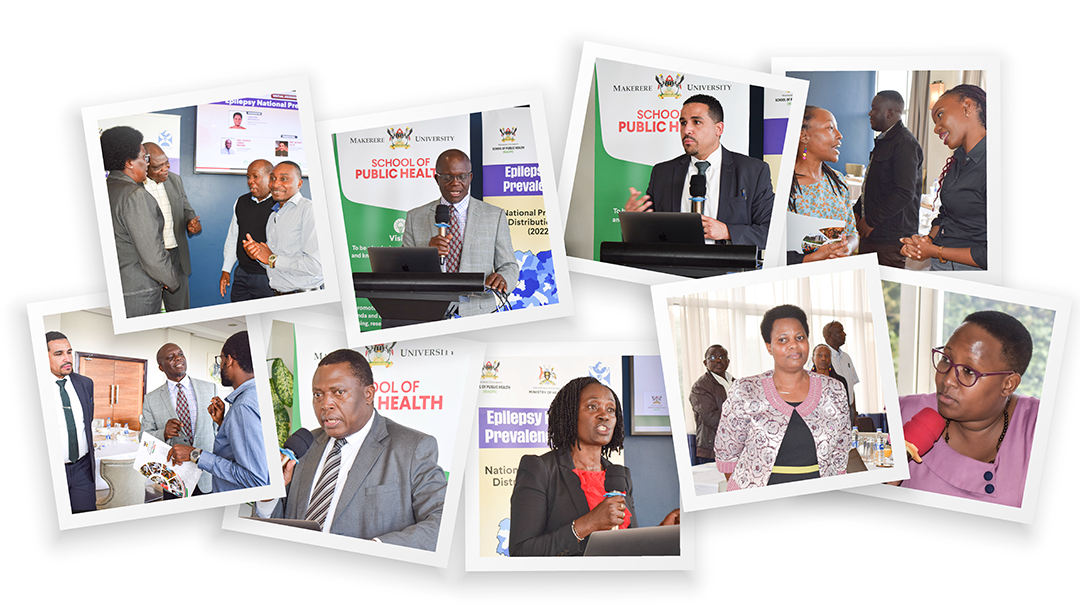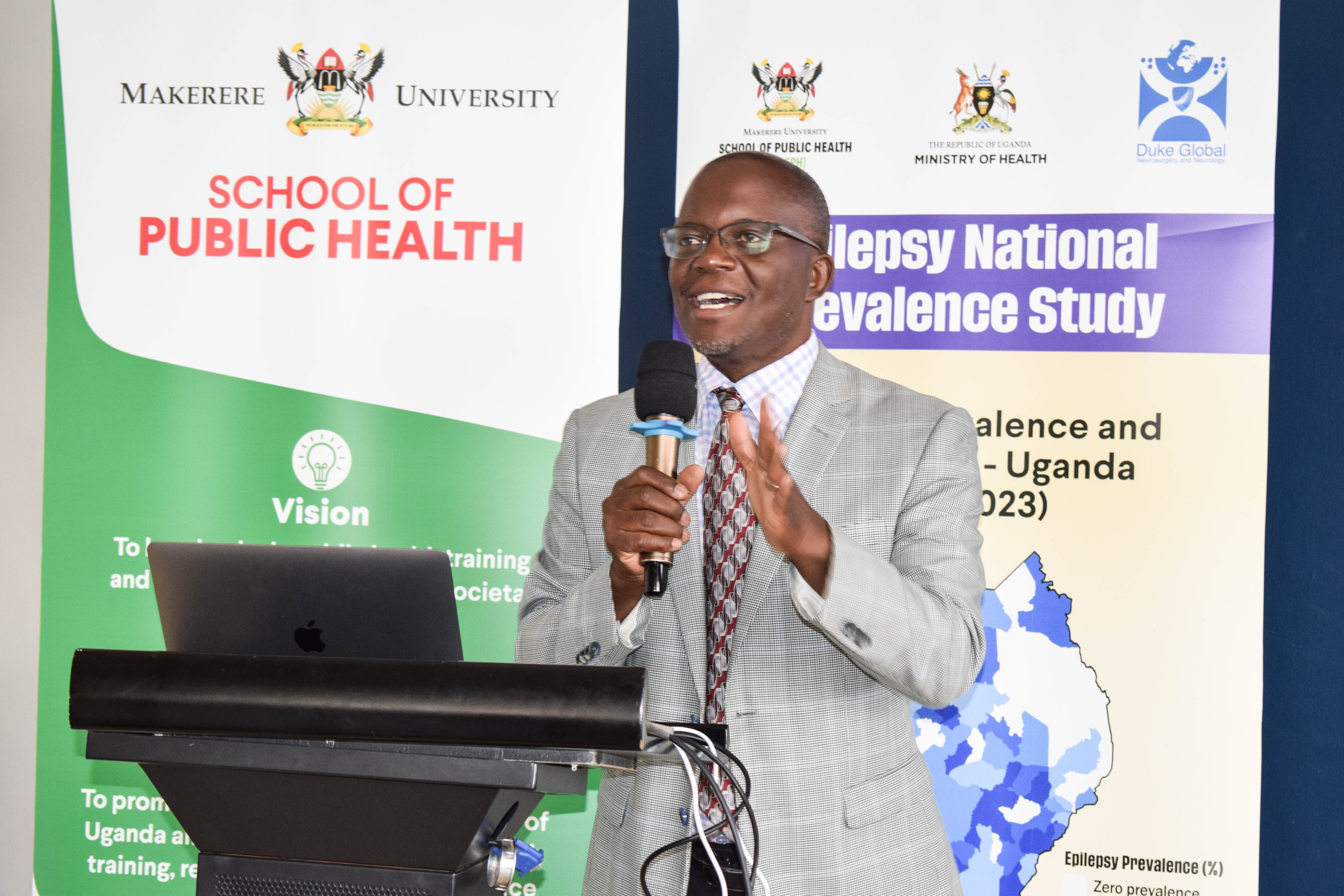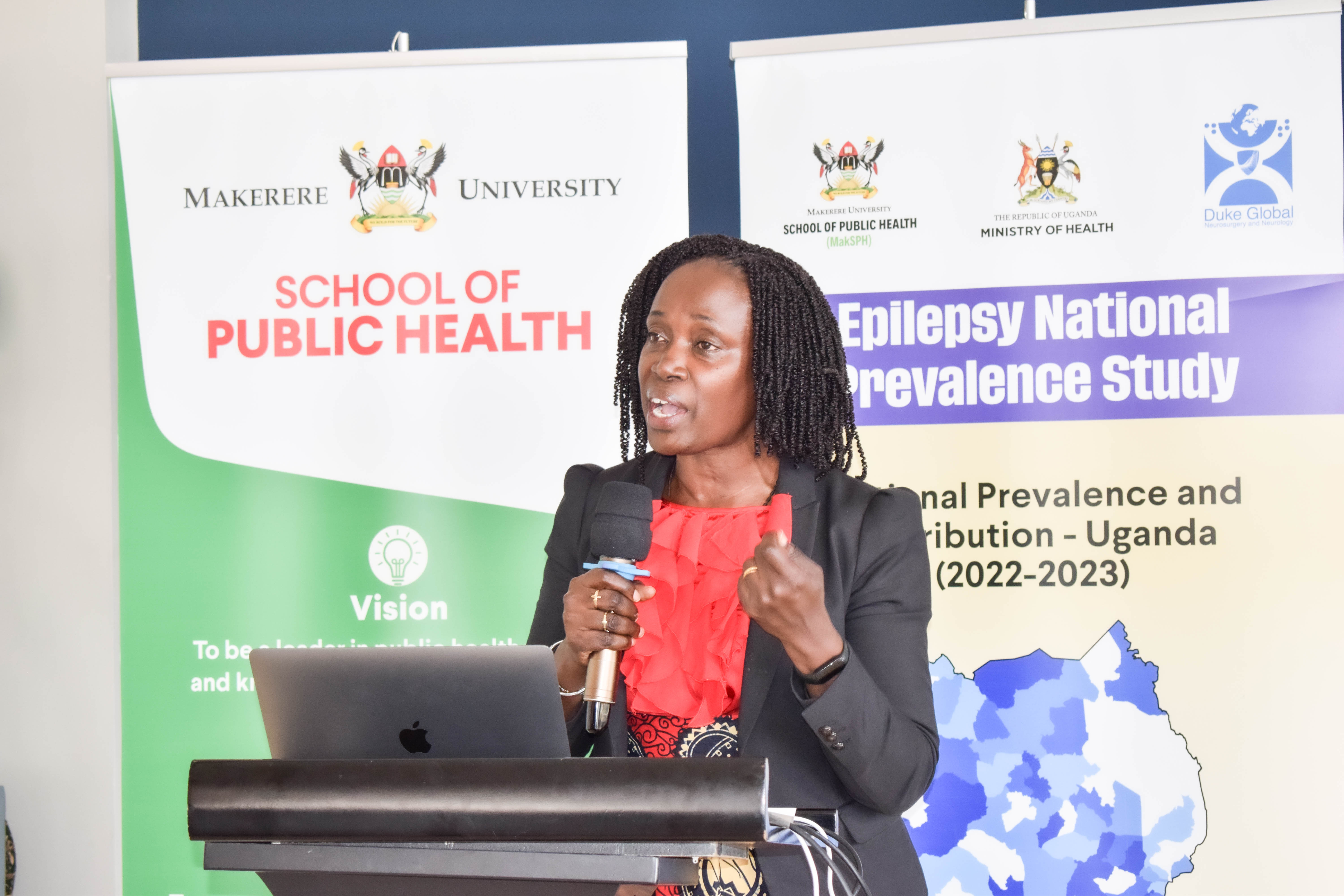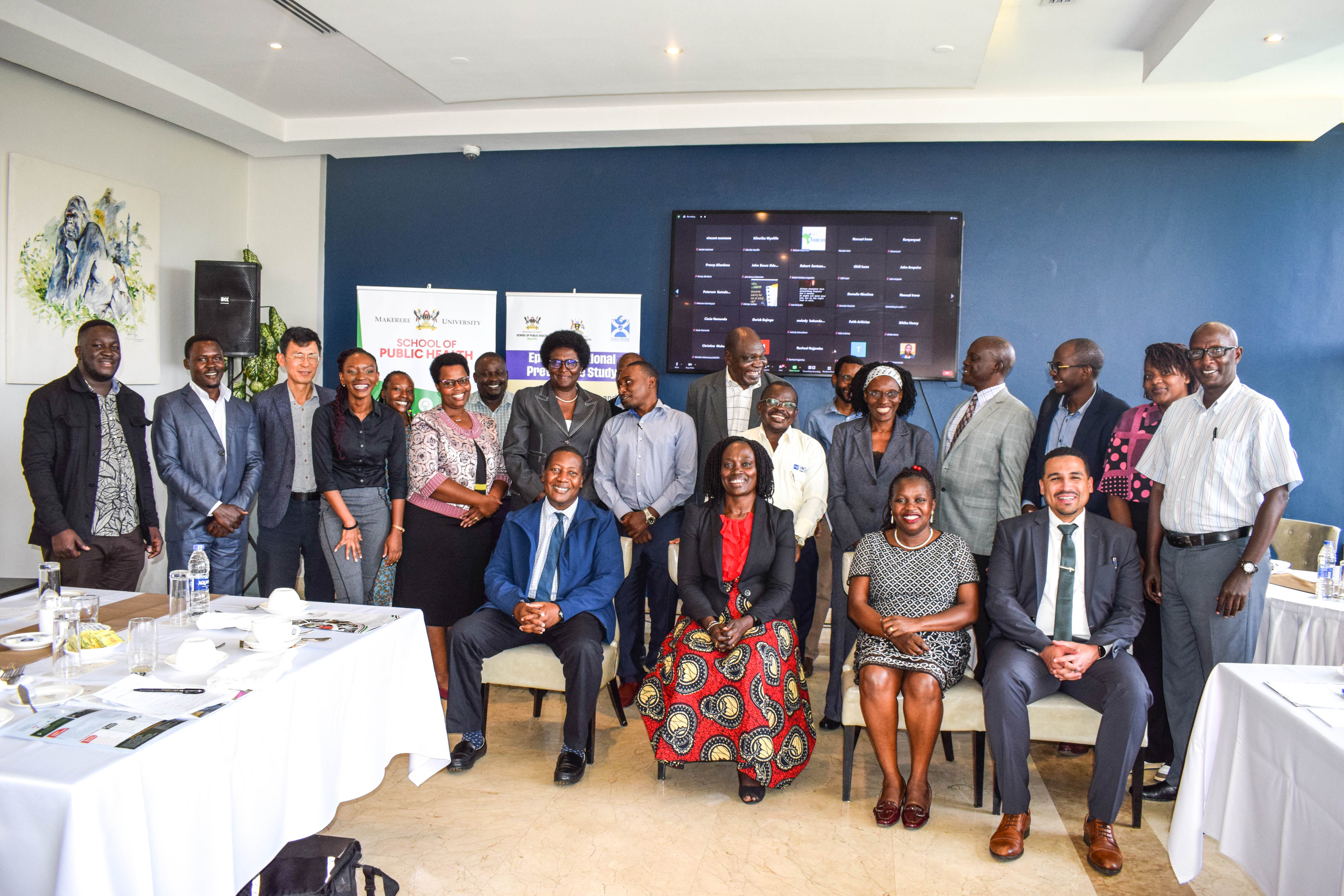
A new study conducted in Uganda has unveiled the prevalence of epilepsy and identified significant barriers to treatment. The study conducted by Makerere University School of Public Health in partnership with Ministry of Health and Duke Global Neurosurgery and neurology, utilized community-based screening methods, found that urgent action is needed to increase awareness and allocate more resources to address this pressing public health issue.
Nearly 80% of individuals with epilepsy reside in low- and middle-income countries (LMICs), and a staggering 75% of those with epilepsy in LMICs do not have access to treatment. This alarming trend is further exacerbated by the stigma surrounding epilepsy, which often leads people to avoid seeking medical care due to fear of discrimination or social ostracization. The study underscores the urgent need to address the barriers to treatment, including stigma, and allocate more resources to improve epilepsy care in LMICs.
By providing a community-based descriptive statement about epilepsy in Uganda, this study sought to contribute vital information for intervention planning, addressing the urgent need for increased awareness, support, and access to treatment for people living with epilepsy in Uganda.
At the Epilepsy National Prevalence Study Dissemination and Dialogue meeting held on Wednesday, April 5, 2023 at the Golden Tulip Hotel in Kampala, Professor Anthony Fuller, the USA & Duke Neurosurgery Principal Investigator, revealed concerning findings.
The study unveiled that the national prevalence rate of epilepsy in Uganda is alarmingly high at 1.69 per cent, indicating that over 770,000 Ugandans are living with the disease. Professor Fuller's presentation shed light on the urgent need for increased awareness, support, and intervention for those affected by epilepsy in Uganda.
During the investigation, participants were asked about their experiences with epilepsy, including symptoms such as shaking, falling, loss of consciousness, bladder control, and abnormal sensations. These questions were part of the primary screen in Phase One of the study, aimed at gathering information on epilepsy-related experiences in the past year.
With a meticulous screening process, the study examined 35,056 individuals suspected to have epilepsy, of whom 2,284 were found positive for unadjusted epilepsy, translating to a prevalence rate of 6.52% in the primary phase.
In the secondary phase, 732 individuals were confirmed positive for unadjusted epilepsy, resulting in a prevalence rate of 2.09%. In this phase, participants were asked about the frequency of attacks, occurrence in children during fever, and association with malaria-related hospitalization. These questions sought to gather additional information to aid in assessing and analyzing the nature and context of participants' experiences with epilepsy.
Through rigorous clinical validation, including Neuro validation and electroencephalogram (EEG) tests, 594 individuals were confirmed to have epilepsy, bringing the final prevalence rate to 1.69%.
In the Central region, out of 11,746 individuals screened, 198 were confirmed positive for epilepsy, while 11,548 were negative, resulting in a prevalence rate of 1.69%. In the Eastern region, 125 out of 5,776 screened were positive, with a prevalence rate of 2.16%. In the Northern region, 68 out of 5,037 screened were positive, resulting in a prevalence rate of 1.35%. Lastly, in the Western region, 203 out of 12,497 screened were positive, with a prevalence rate of 1.62%.
These regional findings shed light on the distribution of epilepsy cases in Uganda and highlight the need for tailored interventions and support at a local level. “The epilepsy prevalence is unevenly distributed, ranging from zero to over 5% in specific districts,” says study report.
Dr. Fredrick E Makumbi, an Associate Professor and a Ugandan Principal Investigator for the study from MakSPH, highlighted the gap in community awareness regarding epilepsy treatment, leading to an increased prevalence rate.
He pointed out that the youth, aged 18 to 35, had a prevalence rate of 2.37 percent, while those aged 36 to 60 had a prevalence rate of 2.33 percent. Along with other investigators and participants, Professor Makumbi emphasized the need for further studies to identify driving factors and take equitable action.

Dr. Angelina Kakooza Mwesige, a Co-Principal Investigator for Uganda who is also a Senior Lecturer and Paediatric Neurologist in the Department of Paediatrics and Child Health, Makerere University School of Medicine noted interesting gender regional variations of epilepsy with higher prevalence in women compared to men.
In the Eastern region, the prevalence rate was higher in females at 2.40% compared to males at 1.97%. Similarly, in the Central region, the prevalence rate was 1.81% in females and 1.53% in males. In the Northern region, the prevalence rate was 1.33% in females compared to 1.37% in males, while in the Western region, it was 1.54% in females and 1.72% in males.

This revelation according to Dr. Kakooza has prompted further consideration for conducting a specialized study to investigate the underlying factors contributing to this statistic.
"We found the overall prevalence rate is 1.73% in female compared to 1.63% in male. We do not know the reason yet but we are investigating this. Also, what we found out, the medicine that can help treat this disease and the trained specialists are not enough. We need to ensure equal and free access to medicine for all. I appeal to all Ugandans, a person with this disease, just like any other disease deserves our support and care," said Dr. Kakooza.
Dr. Daniel Kyabayinze, the Director of Public Health at the Ministry of Health -Uganda, thanked the researchers for the great study and acknowledged that epilepsy requires lifelong treatment and highlighted the need to continuously provide treatment for all those affected.
According to Dr. Kyabayinze, the government plans to use the study's findings to estimate the treatment needs, and Kyabayinze expressed confidence that further examination by Makerere University School of Public Health's partners will help identify associated factors, such as potential agents or organisms, that can be modified to combat epilepsy. He also noted that while some individuals are already receiving treatment, many Ugandans face challenges in affording the necessary treatment for epilepsy.
Dr. Kyabayinze emphasized the importance of placing mental health specialists in various locations across the country to ensure access to services, stating, "There is also a need to intensify sensitization efforts to avoid stigmatizing people with epilepsy and ensure they receive the services they need."

Ms. Nina Mago, Founder and Program Advisor of Purple Bench Initiative, underscores the need policy makers to prioritize healthcare needs of individuals with epilepsy to needs of people with epilepsy. She emphasizes affordable access to good quality medication.
“When you have medication, you have less seizures and you become more confident on being independent, to participate in activities which may include going to school, holding up a job, social interaction but all this is possible when there is also strong awareness,” says Nina.
Ms. Mago, says epilepsy is a life-threatening condition; "I came up with a connotation of a phone battery, as a notification of battery low shows up, equally relates to a life about to be lost."
Dr. Olaro Charles, the Director Health services - Clinical in the Ministry of Health stated that epilepsy remains one of the common mental health conditions in Uganda. He said that they have just concluded a joint review mission and found out that from all their mental health facilities, epilepsy constitute to almost 55.4% of patients.
“If you look at 2019/2020 they were about 314,000 then came to about 340,000 and then last year it was 251,000. This mapping however is very important because it helps us to plan for care. If we do the same in those regions with high prevalence, we may be able to plan well”. Dr. Oralo.
Dr. Sarah Nekesa, Executive Director of Epilepsy Support Association Uganda, called on members of Parliament to increase the budget for mental health drugs, including epilepsy medication, and ensure their availability. She emphasized the need for integrating epilepsy services with other healthcare services to improve accessibility.

Additionally, Dr. Nekesa highlighted the importance of grassroots awareness to combat stigma, and urged the government to allocate adequate human resources and support from health workers to encourage peer talks and build confidence among people living with epilepsy.
“We should increase the drug availability in health facilities and make sure that a person with epilepsy is able to get medication whenever they need it. Epilepsy is not understood by everyone so if everybody understands epilepsy it would be easier for treatment and stigma to go down and integration of epilepsy in every service that is given to the community”. Said Dr. Nekesa.

Davidson Ndyabahika & Julius Mugaga Tukacungurwa

